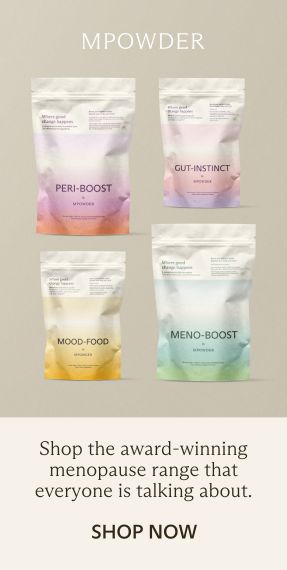Within our community of 30k+ women, anxiety appears to be an early symptom, hitting many of us in our late 30s and early 40s. And, because of the way our hormone pathways work, anxiety is often accompanied by issues with sleep and cognitive function.
It’s the canary in the mine that marks a subtle shift in our hormones, and is often accompanied by challenges with cognitive function and sleep. Researchers believe that these ‘cluster symptoms’ show up together as a result of the complex interplay between our hormones. I like to think of hormones as an orchestra with over a 100 different instruments split into sections. When one section, or even one instrument, is offbeat or out of tune, the whole melody is impacted.
With anxiety, it is likely that it impacts us as our progesterone levels reduce. Progesterone helps to modulate the GABA system in our brain, which is known to impact mood and our ability to achieve rest.
A poor night’s sleep can lead to an increase in cortisol production, which is why we may start to find ourselves waking up feel wired or jittery.
Cortisol surges and chronic stress inhibit serotonin production, which, amongst a whole raft of associated symptoms and behaviours, affects mood.
Poor or disrupted sleep, regardless of hormone fluctuations, impacts our brain’s ability to function optimally and hits our energy levels too. Finally, testosterone is likely to be declining. Although associated with desire, this clever hormone is also, in part, responsible for our ‘get up and go’ or ‘drive’. When we have less, our energy levels are naturally depleted.
Packing a new toolkit for midlife.
It’s natural to feel frustrated by our bodies in midlife. But our biochemistry is phenomenal - and, with the right tools and support, it can be a positive opportunity to rethink how we nourish our bodies and minds. Here are our top tips for tackling anxiety, mood and energy roller coaster holistically:
1.
Make your GP your friend: We tend to leave speaking to our doctor until the point we’re on our knees. But, if you talk and share how you’re feeling early, not only do you have a clear sense of what medical interventions may be of help, you also have a Evidence indicates that Hormone Replacement Therapy may improve mood and anxiety.
2.
Consider how you digest stress: Our hormones are impacted by external influences as well as biochemical changes. And menopause often happens at a stage in our lives when we’re juggling multiple life challenges. From ageing parents, to growing kids. From climbing that career ladder to rethinking what you may want to do next. There is good evidence supporting the impact of breathwork and a regular meditation practice in calming our nervous system. Emotional Freedom Technique (also known as tapping) has a growing body of research supporting its potential too.
3.
Look at what you put on your plate: Avoid high sugar foods, processed food and refined carbs - all of which can push up insulin, which can cause inflammation in the brain and alter neurotransmitters and mood.
4.
Supercharge your nutrition with well researched herbal heroes: What is exciting about this particular moment in time is that the herbs, spices and botanicals used for centuries in traditional medicine practices are finally getting the research investment they need to better quantify their impact. There are so many plants that can support mood, rest, energy and focus. Ashwagandha, one of the best researched adaptogens, has been shown to impact our stress response, reduce anxiety and improve sleep. Curcumin, the primary bioactive substance in Turmeric, has been shown to have a positive impact on mood partially through its ability to modulate the neurotransmitters serotonin and dopamine. Poorly absorbed on its own, it is best taken with piperine, a Black Pepper extract known to increase its bioavailability. Lemon Balm is a gentle herb with strong traditional use and can be easily grown in a window box and taken as a tea. Clinical research shows that it can reduce mild-to-moderate anxiety as well as sleep disturbances. Research shows it can also improve mood. You can find these ingredients and more, blended at therapeutic dosage levels, in our sell-out supplement Mood-Food.
5.
Make movement a priority: We’re all familiar with the ‘fight or flight’ response and the gear shift our bodies automatically make when they feel threatened. Research shows that movement has a very real impact on our cortisol levels - and, depending on the practice we choose, can help settle our bodies back in ‘rest and digest’ too. The best form of exercise is the form you’ll actually do! But in menopause, it may be that you need to listen in to your body a little. If you suddenly find yourself feeling depleted rather than energised following a regime that has previously served you well, consider exploring new forms of movement too.
Share Twitter Facebook Pinterest

